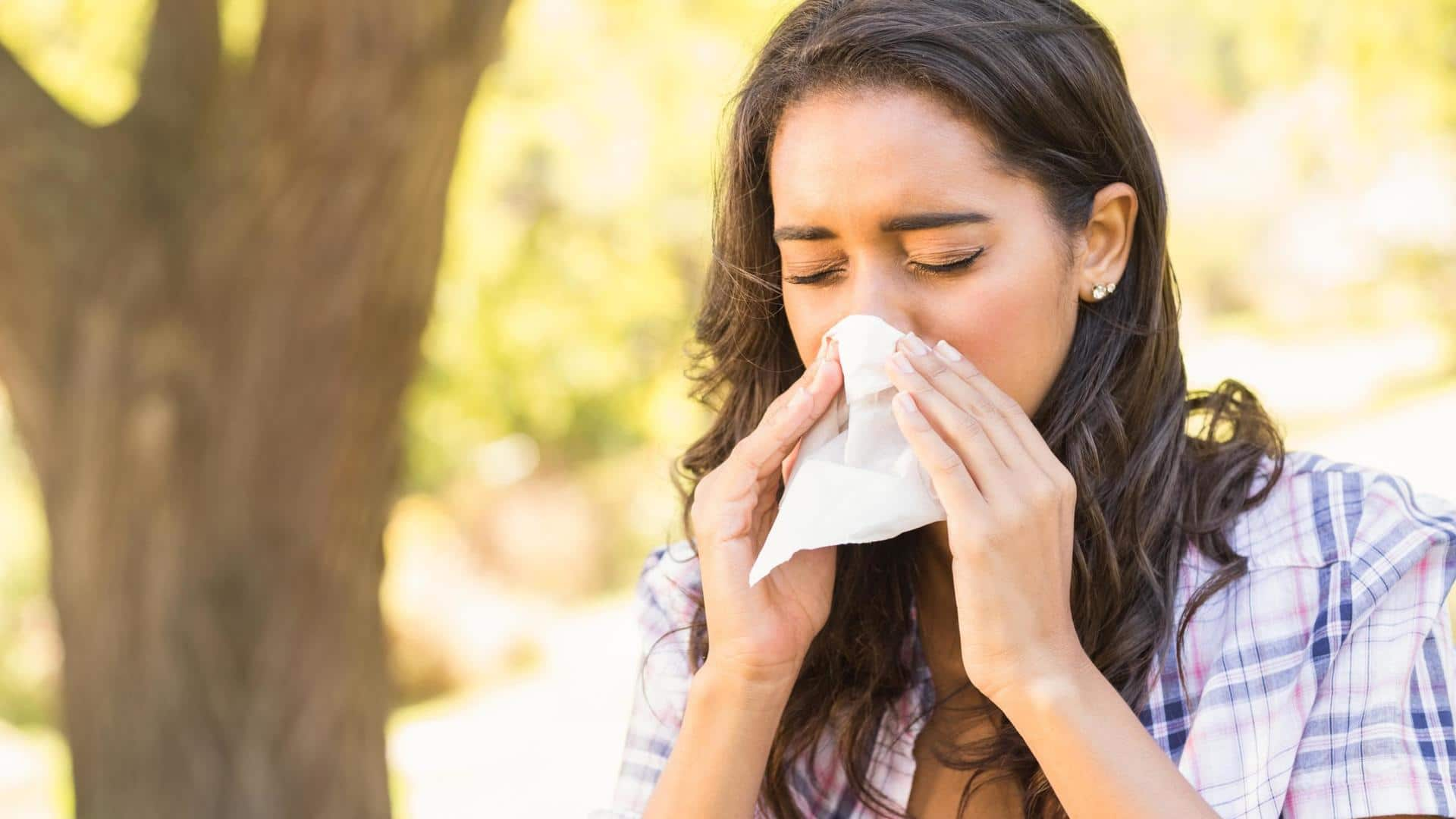
Allergies are getting worse and climate change is the culprit
What's the story
World Allergy Week 2023 is ongoing; it started on June 18 and will continue till June 24. Each year, the World Allergy Organization (WAO) selects a theme that demands our immediate attention. This year's focus is on managing allergic diseases amidst rapidly shifting environmental changes. Here we explore the connection between the rising allergy epidemic and the undeniable impact of climate change.
UN
Earth's surface temperature increased by 1.1°C since late 1800s
According to the United Nations, the Earth's surface temperature has risen by 1.1°C since the late 1800s, surpassing levels of the past 100,000 years. The last decade was the warmest on record, with each of the previous four decades being warmer than any since 1850. Since "Earth is a system, where everything is connected, changes in one area can influence changes in all others."
Connection
What does climate change have to do with allergies?
Burning fossil fuels emits carbon pollution, causing global warming and climate change. This, in turn, prompts plants to produce more pollen for longer periods due to higher temperatures. Furthermore, the combustion of fossil fuels releases air pollutants and particles, worsening allergy symptoms. Scientists predict that by 2040, pollen counts will more than double the levels observed in 2000 in the United States.
Research
Climate change led to longer growing seasons for pollen-making plants
Climate change has already led to earlier springs and late winters, which means a longer growing season for plants that make pollen. A study revealed that the average pollen season has now lengthened by 20 days since 1990. Another study predicts that by 2040, pollen levels may reach their peak as early as April 8, compared to May 1 in 2000.
Pollen
How does the body react to inhaling pollen?
Pollen, produced by trees, flowers, grasses, and weeds, is a common allergen. When individuals with pollen allergies inhale it, their immune system mistakes the harmless pollen as a threat and triggers an allergic reaction. Chemicals like histamine are released to combat the perceived intruder. This immune response, designed to defend against harmful intruders, causes symptoms such as sneezing, itching, and congestion.
Genes
Why do allergies affect some people and not everyone?
Scientists are still figuring out why some people have allergies while others don't. They think it is a combination of things like your genes and environmental factors. Some people might be more likely to get allergies because of their genes. But things like being around allergens during childhood, your lifestyle, and how your immune system works can also make a difference.
Clingy
Once developed, pollen allergies tend to stay
Some people have allergy symptoms year-round, while others only have them during certain seasons. For example, those sensitive to birch pollen experience heightened symptoms during spring when birch trees bloom. Similarly, those with ragweed allergies are most affected during early winters. "Once a person has developed a pollen allergy, it's unlikely to go away," says Dr. Ritesh Singh, Medical Officer, Hans Renal Care Bageshwar.
Types
Types of pollen allergies
Pollen allergies stem from a wide range of plant species, with common culprits including birch trees, oak trees, grass, and ragweed plants. Birch pollen, prevalent during spring, can release millions of grains. Oak pollen, less allergenic but persistent, can cause severe reactions. Grass pollen dominates in spring and summer, with select grass types triggering allergies. Ragweed, active in winter, produces billions of pollen grains.
Symptoms
What are the symptoms of pollen allergies?
Pollen allergies often cause symptoms like a stuffy nose, sinus pressure leading to facial pain, a runny nose, itchy and watery eyes, a sore throat, coughing, a reduced sense of taste or smell, and increased asthma symptoms. These symptoms can vary in severity depending on how sensitive someone is to pollen and the specific types of pollen they come in contact with.
Management
Home remedies to manage seasonal allergies
Dr. Singh recommends consuming vitamin C-rich fruits and vegetables for their natural antihistamine properties. "Having honey and garlic can provide some relief. Add Haldi in milk and drink before going to bed," advises Dr. Singh. He further advises clearing mucus with a nasal rinse. "You can even try using diluted peppermint essential oil for some relief," said Dr. Singh.